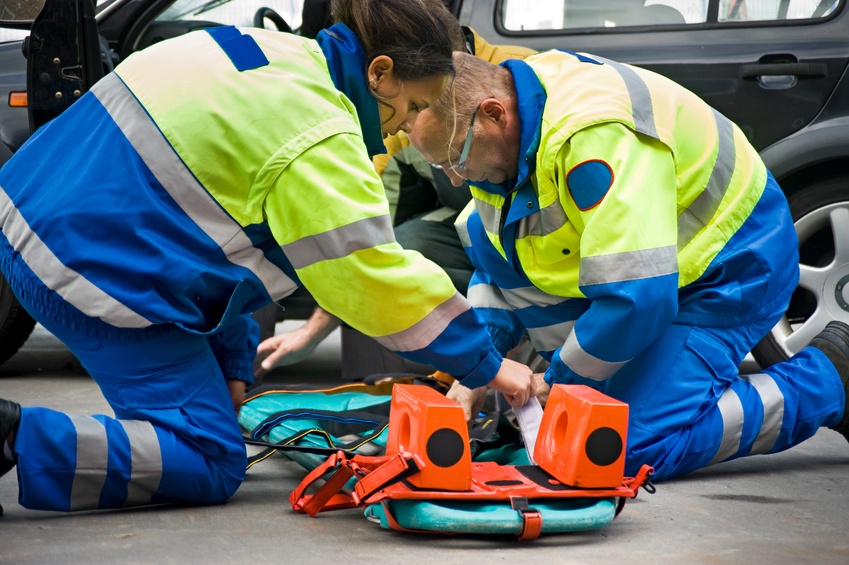Sterile processing technicians help keep patients safe from infection in hospitals, surgery centers, and doctors’ offices across the country. These healthcare professionals take care of operating rooms, surgical instruments and other tools to ensure they stay clean and infection-free. Though the job is crucial to patient safety, it comes with unique challenges.
Top Characteristics Needed to be a Happy, Successful Sterile Processing Technician
Topics: Healthcare, Entry Level Healthcare Careers, Sterile Processing Technician
Life of a Sterile Processing Technician: From the Beginning - the What and Why
Sterile processing technicians perform a vital, life-saving role within hospitals, surgical centers, and doctor’s offices. By ensuring a sterile environment and tools, sterile processing technicians prevent the spread of infections and keep patients and other healthcare workers safe.
In a world where having the appropriate personalized protective equipment (PPE) is crucial to helping patients survive, sterile processing in the healthcare setting is more important than ever before. However, it might not be a job the average individual thinks about, and that's precisely why it's every bit as pivotal as the roles patients see on the frontlines.
Topics: Healthcare, Entry Level Healthcare Careers, Sterile Processing Technician
Happy National Pharmacy Technician Day
October is American Pharmacists Month and what better way to celebrate than to recognize your favorite pharmacy technicians on October 18. Now is the time to spotlight the people who make valuable contributions to the practice of pharmacy day in and day out.
Topics: Healthcare, Entry Level Healthcare Careers, Pharmacy Technician
Experience + Expertise, Meet Your Instructor: Tammera J. Karr
Tammera J. Karr teaches the Holistic Nutritional Therapy module in the Functional Nutrition program at the Institute for Health Professionals.
Topics: Healthcare, Meet the IHP Team, Functional Nutrition, Integrative Healthcare
Life of a Patient Access Specialist: From the Beginning - the What and Why
Updated Oct. 11, 2021
Patient access specialists are a vital part of the care team at almost every hospital, healthcare center and doctor’s office in the country. As the first person who patients meet, patient access specialists can immediately put patients at ease and help them have a smooth, safe healthcare experience.
However, as we saw during the height of the COVID-19 pandemic, they are also vital for helping the rest of their healthcare staff to keep things running safely while protecting their coworkers and patients alike. Because of this, the work of a patient access specialist is more important than ever to keep healthcare systems running smoothly.
Topics: Healthcare, Entry Level Healthcare Careers, Patient Access
Do You Have What it Takes to be a Remote & Industrial Paramedic?
Remote and industrial paramedics serve patients in remote, industrial and maritime locations. These locations don’t have easy access to hospitals or medical care, making the remote paramedic essential to health.
5 Mental and Behavioral Health Courses Healthcare Professionals Need
As a healthcare professional, you will work with a variety of cultural groups, patient populations, and varying psychological diagnoses. The intersectionality of these issues and how they affect different people groups is coming further into popular understanding with time, so being aware of these different factors is more important than ever.
Therefore, taking advantage of mental and behavioral health courses to improve your knowledge and skills will increase your success when working with different groups of people. The PCC Institute for Health Professionals offers five mental and behavioral health courses that can improve your competency as a healthcare professional.
Topics: Professional Development, Healthcare, Mental & Behavioral Health, Communications
Top Characteristics Needed to be a Happy, Successful Medical Coder
Updated Nov. 23, 2021
Medical coding is a field you may not have looked into, but it’s one of the best fields in today’s job market for keeping your skillset relevant and adapting to a new career. If you’re detail-oriented and enjoy the variety of working both with teams and independently, then being a medical coder could be the right job for you. But why else should you become a medical coder?
Topics: Healthcare, Entry Level Healthcare Careers, Medical Coding
Life of a Medical Coder: The What and Why for Getting into the Field
Updated Nov. 1, 2021
You might not realize it, but medical coders are some of the most ever-present workers at any healthcare facility (especially hospitals). Medical coders wear a variety of hats, from reading through a patient’s medical records from their most recent appointment to admitting and discharging individuals, and applying coding rules and government regulations to complete the case. However, since most medical coders don't interact with patients directly, their work tends to go unnoticed at the clinic.
Topics: Healthcare, Entry Level Healthcare Careers, Medical Coding
Exploring the Training and Certification Needs to Becoming a Pharmacy Technician
Pharmacy technicians play a vital role in dispensing medications to patients and customers. Under the supervision of a pharmacist, pharmacy technicians help fill orders, work with customers and manage payments from insurance companies. They help protect patient safety by providing quality service and understanding medication safety.
Pharmacy technicians work at hospitals, pharmacies, long-term care facilities, grocery stores and more. As a pharmacy technician, you can be part of the growing healthcare field and play an important role in improving people’s health without having to go to school for four years. A pharmacy technician is an entry-level health care job, so you don’t have to have any previous experience in healthcare to complete training and certification.
Topics: Healthcare, Entry Level Healthcare Careers, Pharmacy Technician











